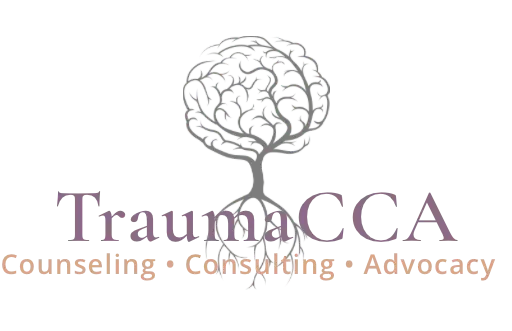Self-Care & Coping Strategies for Trauma Survivors: Honest, Real-Life Tools Straight from Survivors
For many who’ve survived trauma, self-care can feel like an impossible ideal dreamed up by people who don’t “get it.” The reality is much messier. The best tools aren’t found in glossy magazines—they’re pulled from lived experience, the tiny victories and hard-won lessons of people who know what it means to survive. What follows isn’t theory—it’s a collection of firsthand, real-world strategies, shared by trauma survivors themselves.
“I Do What Gets Me Through—Even If It Looks Weird.”
Locking Myself in the Bathroom for Five Minutes
Sometimes the sensation of overwhelm comes out of nowhere. More than a few survivors admit to hiding out in the bathroom, taking a “time-out” for deep breaths, splashing cold water on their face, or simply letting themselves shake or cry in private. It’s a safe haven, even for just a couple of minutes.
Pressing My Feet Into the Floor
“I literally stamp my feet, dig my heels into the carpet, or push my toes until I feel the ground. Tells my brain I’m here, now—not back in the past,” says one survivor.
Holding Onto a Small Object
Lots of people carry a “comfort object” everywhere: a smooth stone, a piece of jewelry, a special coin, or piece of fabric. Running their thumb over it or holding it in a fist helps survivors ground themselves and remember safety is possible.
“I Use My Senses to Remember I’m Safe.”
Ice Cubes and Cold Showers
“Cold snaps me out of flashbacks when nothing else will. I’ll grab an ice cube, or splash my wrists with cold water, or even dunk my face. It shocks me back to the present.”
Familiar Smells
Scent can be a powerful anchor. Many survivors keep a favorite lotion, essential oil, or scented candle nearby. “Lavender and citrus remind me I’m safe at home, not where I was hurt,” says another.
Music as Medicine
“I have playlists for everything—calming, crying, feeling angry, or just to get out of my head. Sometimes a single song on repeat is what gets me through.”
“I Move My Body—Even If It’s Just Barely.”
Rocking, Pacing, or Dancing It Out
Some survivors find repetitive motion helps “shake trauma loose”—rocking back and forth, swaying, or even jumping in place. “I dance in my kitchen, or pace like I’m walking off the nerves. Sometimes I just rock in my chair and focus on my breath.”
Gentle Stretches
lorem ipsum
“I Set Tiny, Realistic Goals.”
Brushing My Teeth Counts
For many, the “win” some days is brushing teeth, changing out of pajamas, or cracking a window for fresh air. “I celebrate every single small thing. When all I did was eat a granola bar and step outside, that’s enough for today.”
Crisis Kits
“It’s a box with snacks, fidget toys, my medication, a soft scarf, comforting notes. When I’m overwhelmed, I grab my kit. Everything I need to survive a bad spell is in there.”
“I Give My Feelings Somewhere to Go.”
Screaming Into a Pillow or Crying in the Shower
Letting out emotion is sometimes the healthiest choice. “If I need to cry, I let myself. Showers are my safe place to sob it out. When I’m angry, I scream into my pillow or write curse words in my journal until the feeling passes.”
Writing Unsent Letters
Survivors vent pain, anger, or grief in letters or emails they never send. “It’s not for anyone but me—to get feelings out of my body and onto paper.”
“I Control What I Can—and Let Go of the Rest.”
Color-Coding the Calendar
Structure can mean safety. “I block off down-time on my schedule just as I would an appointment—and I protect it. No explanations. ‘No’ is a complete sentence.”
Invisible Boundaries
On hard days, survivors use tricks: headphones in (with or without music), hoodies up, sunglasses on, or carrying a book. “It signals to people: not today.”
“I Find—Or Build—My Own Community.”
Group Chats & Peer Support
“I’m part of a group chat with other survivors. We don’t have to explain our symptoms, and everyone’s weird coping strategies are accepted.”
Online Forums and Hotlines
“I’ve called a crisis text line or posted in online survivor forums at 3AM. Sometimes reading other people’s stories reminds me I’m really not alone, no matter how isolated I feel.”
“I Give Myself Permission—No Approval Needed.”
Permission to Rest
“I always believed I was lazy if I took naps. Now I know rest is sacred, especially in recovery. If I need to sleep, I sleep.”
Permission to Cancel
“No guilt for canceling plans when I’m flooded. My friends know if I say I can’t, I mean it. If they can’t handle it, they’re not my people.”
Permission to Start Over—Again and Again
“The best advice I got: You can always begin again. If today was hard, you get a clean slate tomorrow. There’s no such thing as failing at healing.”
Final Thoughts: Healing is Not Linear and You’re Never Alone
These aren’t perfect strategies. Some days they help a little, other days not at all, and sometimes you need to invent new ones. Real survivors stress—what matters is finding what works for you, not what works for anyone else.
If this all feels messy or “not enough”—you’re in good company. Healing is trial and error, grit and grace. As one survivor puts it: “There are no bonus points for doing it perfectly. Surviving is enough. Everything else is extra.”
You are not alone, and every creative, imperfect tool you use to keep going is proof of your resilience.
If you want to share your own tips, connect with others, or just need someone who listens without judgment, TraumaCCA is here to walk beside you.
